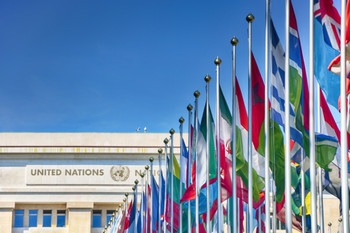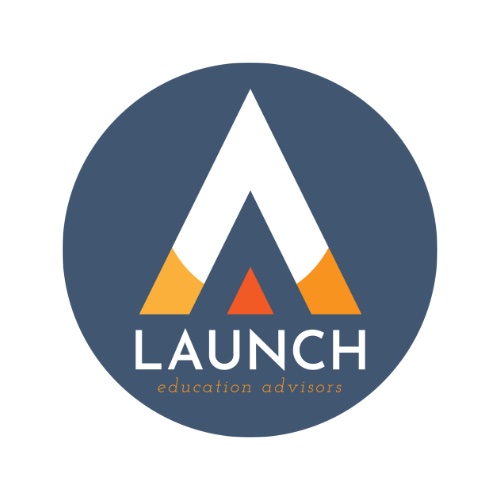by Mary Adams, AWC The Hague and Human Rights Team Co-Chair
 In 2023–24, CSW NGO Geneva worked with 120 NGOs from 43 countries to research the progress and challenges for member states of the UN ECE region based on the 12 critical areas of concern in the 1995 Beijing Platform for Action (BPfA). The 12 working groups were given a goal of creating statements, recommendations, resource documents and videos as published advocacy tools for Member States and civil society. Ten FAWCO members contributed their skills and human rights expertise to this project. The Consultation Day held on March 4 was intended to promote awareness through a speaker platform and breakout rooms to encourage discussion and action. Below are the highlights from the speakers’ sessions.
In 2023–24, CSW NGO Geneva worked with 120 NGOs from 43 countries to research the progress and challenges for member states of the UN ECE region based on the 12 critical areas of concern in the 1995 Beijing Platform for Action (BPfA). The 12 working groups were given a goal of creating statements, recommendations, resource documents and videos as published advocacy tools for Member States and civil society. Ten FAWCO members contributed their skills and human rights expertise to this project. The Consultation Day held on March 4 was intended to promote awareness through a speaker platform and breakout rooms to encourage discussion and action. Below are the highlights from the speakers’ sessions.
Ilinca Paladi, Diplomat at the Permanent Mission of Moldova to the United Nations in Geneva
Ms. Paladi emphasized that the “path to gender quality is far from complete” and “words alone will not secure gender equality.” Member States should take active steps that include impact assessment. She stressed that the steps must embrace diversity and an inclusive approach, Member States need to remain vigilant of challenges ahead and avoid the regression of their commitments to women and girls. “Momentum, Accountability, Monitoring Progress.”
Adriana Quiñones, Deputy Director UN Women Geneva
Ms. Quiñones focused on a positive narrative of progress that continues to be made in the areas of the 12 critical concerns. Although gaps do exist in legislation, budget and implementation, we have treaty bodies and human rights mechanisms for monitoring.
Sofya Margaryan, Counselor at the Permanent Mission of Armenia to the United Nations in Geneva
Ms. Margaryan provided a statement about the status of gender equality in Armenia. This member state has enacted inclusive and gender-sensitive policies as well as institutional mechanisms in policies and legislation. Civil society is a key partner in implementation. Armenia links climate change and human rights to violence. To change this model, Armenia has a climate resilience program that addresses issues such as Women in Water Management, Public Health and Reproductive Health. She stated that it is necessary to leverage legal expertise to support biodiversity. Armenia is proud to host COP17 in 2026.
Dr Neerje Chowdhary, MD, Technical Officer, Brain Health, Department of Mental Health, Brain Health and Substance Abuse, World Health Organization
Dr. Chowdhary provided valuable insights on the mental health of women, citing depression, dementia, caretaking responsibilities that stem from poverty, violence, labor conditions and educational barriers. The WHO has found that Member States spend less than 2% of their budgets for mental health programs. She recommended that access to care support be expanded, reducing the social stigma of admitting mental health issues, and building comprehensive health plans based on the WHO Mental Health Action Plan 2013–2030.
Mariana Duarte Mutzenburg, Program Officer, Gender Partnership Programme, Inter-Parliamentary Union
Ms. Duarte’s focus was the Member State challenge of parliament seats for women. She cited from the 1995–2025 Women in Parliament Report that the percentage of seats held by women has risen from 11.3% (1995) to 27.2% (2025); however, a slowdown in progress has appeared since 2015. Only six countries have 50% of women represented in parliament. She described progress as a “mixed picture.” We must stop the risk of falling backward by remaining alert and taking bold actions. Civil society must help to create the demand for gender parity in government ruling bodies. We need to create a model for women’s roles in parliament that is implemented as an institutional mechanism. This means motivating national leadership willingness for gender parity and, most importantly, promoting women’s rights movements both within and outside of parliament.
Dubravka Šimonovič, Former Special Rapporteur on Violence Against Women, CEDAW
Ms. Simonovic voiced concern over Member States lagging behind on implementation of the Beijing Platform for Action. She cited two expert monitoring bodies, CSW and CEDAW, which are responsible for establishing indicators, data monitoring and reporting. Unfortunately, there is no “clear picture of progress.” She urged NGOs to take opportunities to speak out on topics, toolkits and making Violence Against Women a standing item on the CSW agenda.
Image from Canva.com

